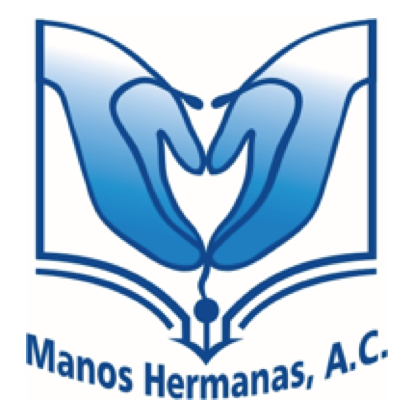


Who Is Manos Hermanas?
Manos Hermanas was founded by concerned professionals in Guadalajara, Jalisco, Mexico, in 1995 as a broad-based, humanitarian, non-profit organization to raise awareness and resources nationally and internationally to respond to multiple critical human needs across Mexico and around the world.
Manos Hermanas’ central strategy is to collaborate with its extensive, regional and multi-state network of like-minded, qualified human needs service organizations to match available resources to their local needs. These organizations best know their local situations and the feasibility of effective aid working though their volunteers.
As a lay organization, Manos Hermanas collaborates freely in mutually agreed upon participatory human needs projects and programs with different community and faith-based non-profit human needs organizations, as well as Government agencies on all levels: federal, state, county, and community. Areas of government agency collaboration have included projects with branches that deal with: public health, charity hospitals and clinics, prison systems, water provision and purification, sewage treatment systems, agriculture and livestock production, education on all levels, special needs populations, and disaster relief.
Areas of collaboration:
Poverty: Family budget training, improved goat genetics, job training: nurses’ aid courses, electronic assembly, and sellable homemade crafts. Poverty is also a factor in each of the following areas of need
Hunger: Supplemental community and orphanage feeding programs; family gardens; vertical gardens where land is limited; small animal production, livestock vaccination, deworming, and treatments to improve health and production; alfalfa extract concentrate as a food supplement; and nutrition training to help families choose the best diet for the resources they have available.
Thirst: Deep wells for regions without potable water, arsenic removal units for contaminated wells in a semi-desert region, water purification units in disaster relief, and other local needs.
Illness: Ecological outhouses; public health teaching; blankets for cold climates; cervical cancer screening; donated medicines and medical equipment for charity hospitals and free community clinics; and water resistant, solar powered hearing aids.
Education: School equipment and supplies, computer labs for rural schools, continuing education courses for physical therapists to rehabilitate leg amputees fitted with prostheses, and connecting students for community service opportunities in their chosen fields of study.
We admit we have not always been able to find the financial or material resources to help meet valid, critical needs. Nor have we always been able to find the qualified local collaboration necessary to carry out the programs or projects to meet those needs. If both sides of the equation are not available for a certain project, we move on and do what we can do in other needful opportunities.
We are presently working within the COVID-19 guidelines to meet current and continuing needs.
